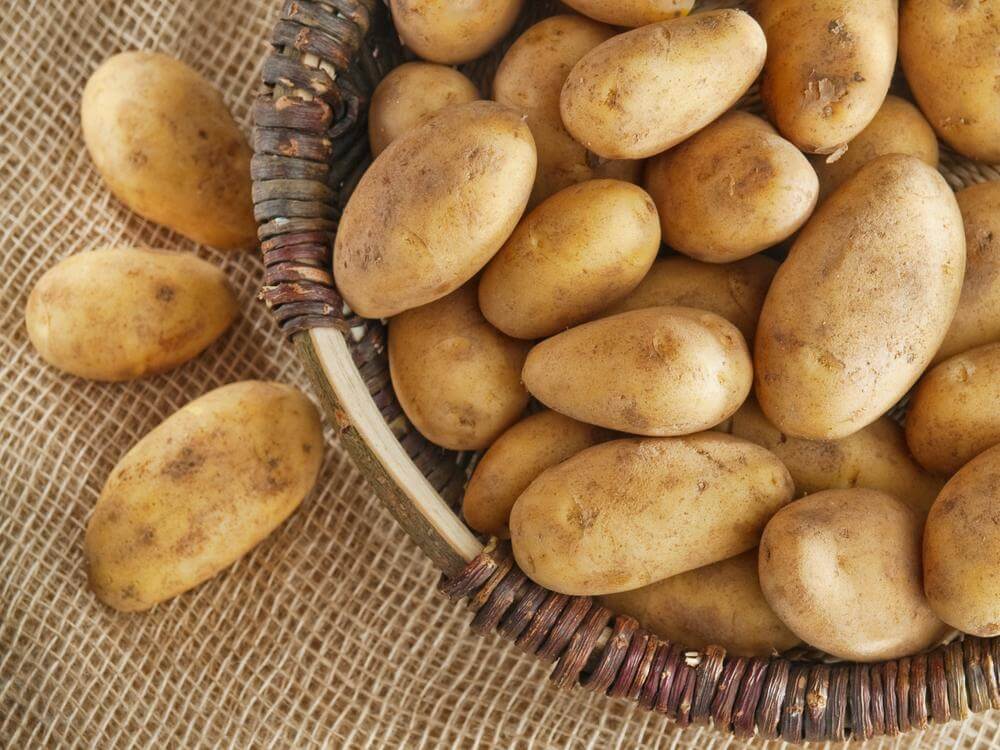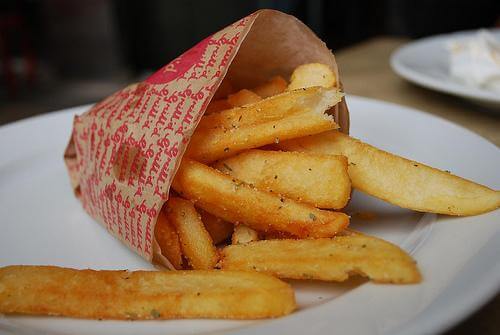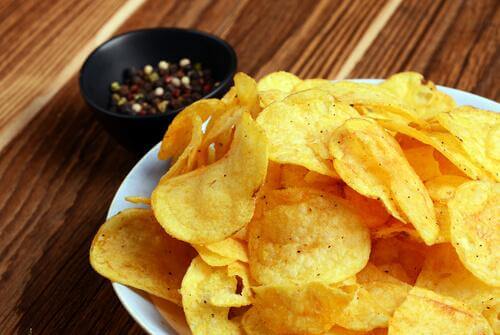How to Make Crispy French Fries


Written and verified by the nutritionist Eliana Delgado Villanueva
In this article, here are some cool tricks to make sure your French fries become really crispy. Go ahead and put them to the test!
Most people love crispy French fries. They go great with almost any dish. However, no one likes greasy, limp, and soggy fries since they don’t taste that well. Below you’ll learn some great tips that will assure your French fries turn out perfectly crispy every time.
Although potatoes are great sources of carbohydrates, this doesn’t mean they’re not nutritious. They have a lot of vitamin C, vitamin B6, thiamine, niacin, pantothenic acid, and folate.
Potatoes are also excellent sources of minerals such as manganese, phosphorus, copper, potassium, magnesium, and iron. However, you shouldn’t consume too many potatoes because they could pose a health risk.
Frying potatoes with peanut oil is one of many tricks to help ensure your French fries turn out really crispy.
Peanut oil is really popular in the kitchen because it can be used for frying, sautéing, or simply to give your dishes a nutty kick. The fatty acids in peanut oil are similar to those in olive oil.
How to Make Crispy French Fries
French fries can be really delicious if you know how to make them right. Many famous restaurants chains know the secret to making them perfectly, so they don’t end up burnt, under-cooked, or soggy.
Ingredients
- A deep pot or frying pan.
- 3 cups of peanut or vegetable oil (300 ml).
- 6 white potatoes (900 g).
- 2 or 3 teaspoons of salt (15 g).
Trick #1

- First, cut the potatoes in long strips and then wash them with cold water in order to remove the starch.
- Another way to remove the starch is by washing the potatoes in ice water and letting them soak for 5 minutes. Remember to dry them thoroughly to remove any excess water.
- You shouldn’t freeze raw potatoes. You have to cook them prior to storing them in the freezer. Your French fries will be crispier if you freeze them.
- What you have to do is fry the potatoes for a few minutes (make sure you don’t brown them) and them place them on top of a paper towel. Then, put all the French fries in a bag or a covered bowl and freeze them for a few hours.
- It doesn’t matter if the French fries stick together when you take them out of the freezer. They’ll separate when you fry them. If you fry them twice, you’ll see that they’ll turn golden and crispy.
- Finally, sprinkle some salt on them (to taste).
Read this article too: 5 Alternative Uses for Corn Starch that You’re Going to Love
Trick #2
- Another trick to getting crispy fries is sprinkling salt on them before frying.
- Follow the steps in the first trick before frying them and then sprinkle some salt on top and fry until they’re golden brown.
- This makes them really crispy. However, you should make sure to eat them fast because the salt will also make them soggy once they cool. (This is why we recommend not sprinkling too much salt).
Trick #3

- Another great trick is to fry them twice by first frying them in one frying pan and then in another.
- This keeps the oil warm and ensures it won’t cause any bubbles to appear after frying your French fries. We guarantee that this trick will help you get crispy and appetizing French fries.
Trick #4
There are people who use another method to keep the oil hot. It consists of adding 2 tablespoons of butter to the vegetable oil. This will keep the oil hot to ensure crunchier French fries.
Check out this article too: 4 Mashed Potatoes and Steamed Vegetables Recipes
Trick #5

- Another great trick is to cover the French fries with flour or cornstarch.
- Before frying them, wash them with salted cold water so the fries absorb the sodium and become well-seasoned.
All cited sources were thoroughly reviewed by our team to ensure their quality, reliability, currency, and validity. The bibliography of this article was considered reliable and of academic or scientific accuracy.
- Camire, M. E. (2016). Potatoes and Human Health. In Advances in Potato Chemistry and Technology: Second Edition (pp. 685–704). Elsevier Inc. https://doi.org/10.1016/B978-0-12-800002-1.00023-6
- Ezekiel, R., Singh, N., Sharma, S., & Kaur, A. (2013). Beneficial phytochemicals in potato – a review. Food Research International, 50(2), 487–496. https://doi.org/10.1016/j.foodres.2011.04.025
- Ezekiel, R., Singh, N., Sharma, S., & Kaur, A. (2013). Beneficial phytochemicals in potato – a review. Food Research International, 50(2), 487–496. https://doi.org/10.1016/j.foodres.2011.04.025
This text is provided for informational purposes only and does not replace consultation with a professional. If in doubt, consult your specialist.








